Issue 83 : 13 June 2021
Talofa Lava, Kia Orana, Malo E Leilei, Tena Koutou, Hello ...
... and welcome to the latest issue of “For The Love Of The Game”, the official e-zine of the New Zealand Amateur Sport Association Inc.
If you have any feedback on this issue, ideas for future articles, or would like to contact the Editor, please click here. And, you are invited to forward the e-zine to others you know, who may be interested in reading it. An archive of earlier editions of the e-zine can be found here. For those who follow Twitter, you can also follow the Association, @AmateurSportNZ.
If you are interested in applying for membership of the Association, please click here.
Sale and Supply of Alcohol (Harm Minimisation) Amendment Bill ...
Ten Members of Parliament have put their support behind a proposed new Member's Bill, which aims to amend the Sale and Supply of Alcohol Act 2012, by banning alcohol sponsorship and advertising of all streamed and live sports and at all sporting venues, in a similar manner to the current restrictions on tobacco advertising and sponsorship.
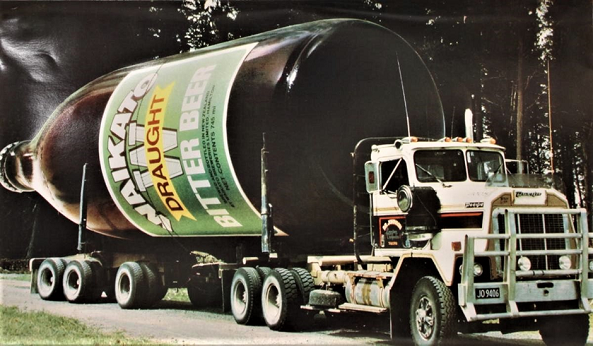
(A proposed ban on alcohol sponsorship of sport teams and events is before Parliament)
The Bill will also prohibit alcohol sponsorship of the name of a sports team and alcohol sponsorship of sports merchandise, uniforms, and equipment. Proposed Members' bills that earn the support of 61 or more members of Parliament (who are not part of the Executive) are introduced on the next sitting day, without needing to be drawn from a Members' Bill ballot.
You can review the draft Bill, by clicking here.
20% Of Club Income Derived From Bar Sales ...
An analysis of the financial statements of 21 incorporated sport clubs from seven different sporting codes in the Wellington region reveals that on average, around 20% of total sport club annual revenue is derived from bar sales, with golf, bowls and racquet sports (tennis and squash) banking the largest share of total bar takings, (77%).
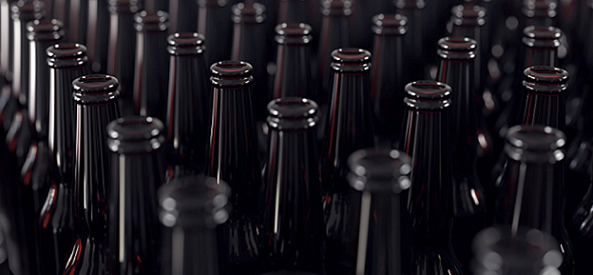
(For some sport clubs, bar sales are a material part of their annual income)
However some sporting codes such as netball, hockey and rowing record no revenue from alcohol sales and yet remain financially stable. Bowls appears to rely most heavily on bar sales, with the bowling clubs in the analysis reporting 50% of their annual revenue (on average) being derived over the bar. Since the mid-1970s, sport clubs have been able to apply for a license to sell alcohol at their premises, to encourage responsible use of alcohol in a sporting environment.
You can read more, here.
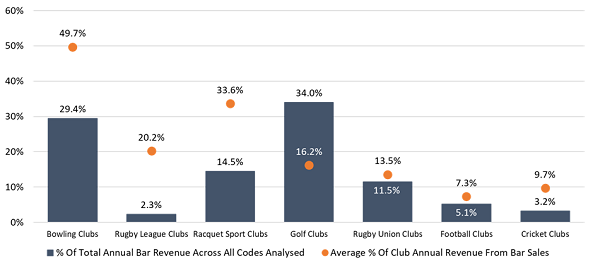
(Source: NZ Amateur Sport Association analysis, www.societies.govt.nz)
Queen’s Birthday Honours For Community Sport ...
21 of the 170 awards made by the Government in the Queen's Birthday Honours List 2021, were for services to sport. Bowls, disabled sports, football, golf, hockey, netball, paddle sports, rugby union, rugby league, swimming and tennis were among the sporting codes recognised in the awards. Among the perhaps lesser well-known award recipients were Vanessa Tyson of Lower Hutt (QSM) and Paul Tyson of Dunedin (QSM), both of whom received acknowledgment for their voluntary service in support of lawn bowls, athletics and rugby union.
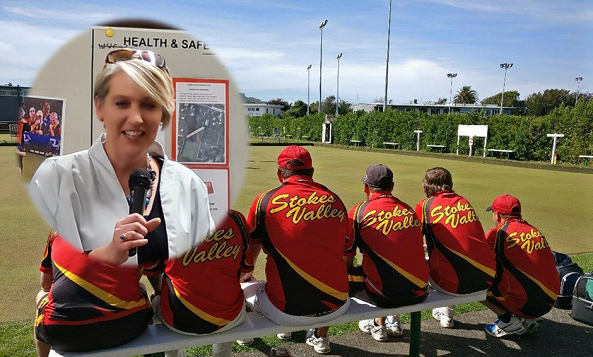
(Vanessa Taylor, QSM, from the Stokes Valley Bowling Club)
Vanessa Taylor has made a significant contribution to the development of the Stokes Valley Bowling Club. She has been Secretary of the club for seven years and has been instrumental in securing business sponsorship. She has played a key role in making the club more accessible, promoting the club and sport more widely through social media and helping the club achieve a "Gold Club Check Award" with Bowls New Zealand, "Wellington Club of the Year 2020" and "Bowls New Zealand Club of the Year", in 2018.
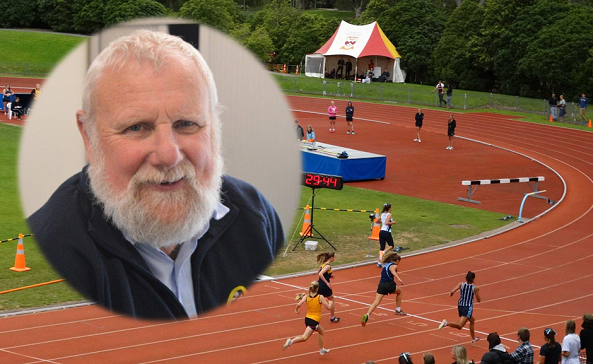
(Paul Tyson, QSM, of the Otago Rugby Referees Association)
Paul Tyson has had a lifetime involvement with sport in a voluntary capacity, particularly athletics, from grassroots to national governance level. A volunteer coach, manager, event official, organiser, and support worker, he has managed everything from local and regional after-school activities, senior track and field athletics, the South Island Colgate Games, to the international Pacific Games. He has been involved with rugby union as a referee and since 1995 as a referee coach and mentor. He is highly valued as a coach, assessor and mentor to referees in Dunedin and Otago across all club grades.
The Association congratulates Vanessa and Paul on their recognition.
Dunedin's "Sharks" Celebrate 150 Years ...
The Dunedin Football Club was first formally constituted in March 1872, with Professor George Samuel Sale MA (who taught classics and English literature at the newly opened Otago University), elected the inaugural President. The first match was played on the South Dunedin Recreation Ground on Saturday, 6 April 1872 at 2.30pm. It was noted that, “some very good play was shown, but a great deal of time was lost in disputes as to the rules, which it would as well if members would study before playing, as much time would thereby be saved”.
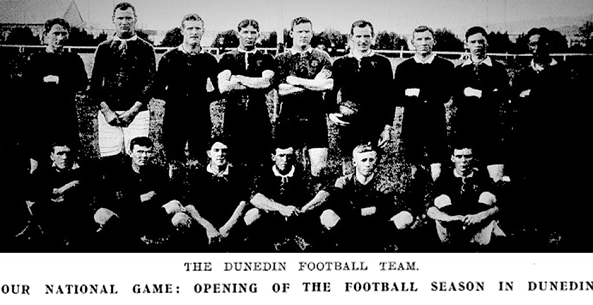
But is Dunedin Football Club, (as one news outlet has stated), “the oldest continuous club in the country”? It would appear that two historical facts may be in dispute. Firstly, the club was formed in Tuesday, 12 March 1872, (not in 1871 as has been suggested), according to a report from the “Evening Star” of that year. And secondly, the Wellington Football Club, was formed on or around July 1871, (nearly a year before Dunedin). Regardless, in that early era, there was not a consistent set of football rules, as clubs experimented with the Melbourne Rules (“AFL” in today’s parlance), in addition to other variations of the new rules imported from England. So perhaps the argument as to “who was first”, is something of a moot point!
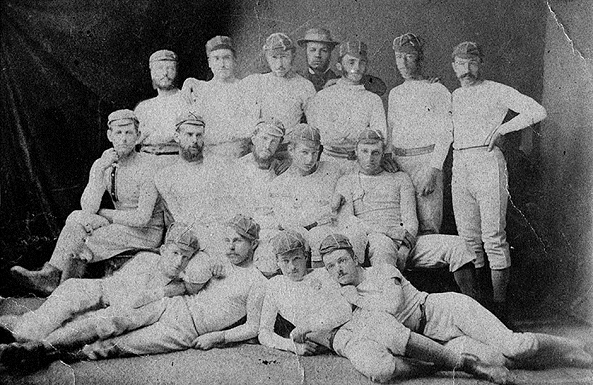
(The Nelson FC team of 1873, around the time of their match against the Wellington FC)
$210,000 On New "Head Impact" (Concussion) Study ...
$210,000 is being spent on a new concussion study involving the provision of data-gathering mouthguards to amateur rugby union players in Otago. The mouthguards, valued at $300 each, are a key part of a new study concerning concussion funded by World Rugby, with assistance from New Zealand Rugby, the University of Otago and Prevent Biometrics.
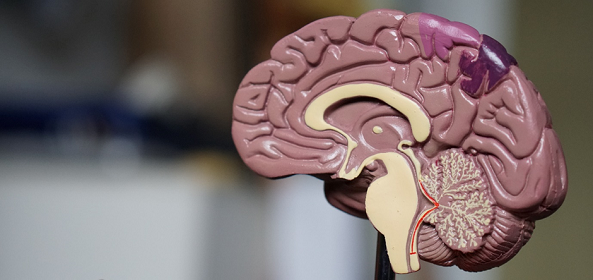
(World Rugby is committed to furthering head injury prevention in rugby union)
The state-of-the-art mouthguards contain a data acquisition system that, in real-time, collect and wirelessly transmit count, load, location, direction, linear and rotational motion every time there is a collision between players. The mouthguards have been handed-out to 700 rugby players across 28 teams in Dunedin, with data to be captured from all training sessions and matches played over a four-week block.
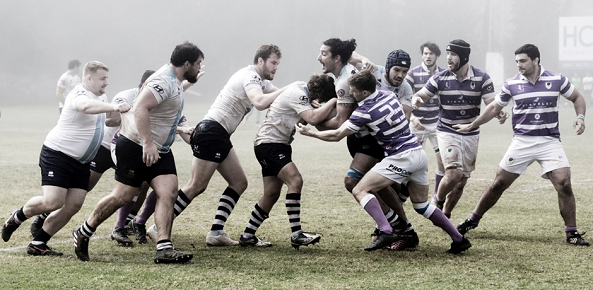
(The study is intended to protect youth against excessive head impacts and dangerous play)
The threshold for triggering collection of collision data has been set at "5 g-force", so any time someone wearing a mouthguard collides with another player, the impact triggers the sensors in the mouthguard that will capture that data. (Formula 1 racing drivers feel around 5-g’s, under heavy braking). The Association anticipates that the data will be made publicly available to better inform supporters of the code about the risks of head injury, while also guiding the game's governing body as to how the game can be made safer for all players.
“Artistic Swimming” Makes A Splash ...
Previously called “synchronised swimming”, “artistic swimming” connects art, dance and a water sport. With only ten clubs spread throughout New Zealand, artistic swimming does not receive many news headlines, but it is a growing sport with around 230 participants nationally. An inclusive sport, artistic swimming caters to all abilities and levels with many of the swimmers who try artistic swimming, considering themselves to be “non-sporty” types.
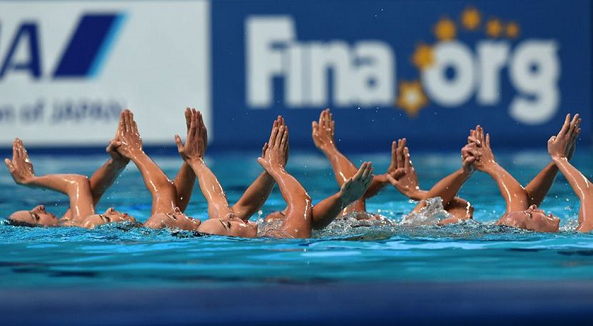
("Synchro Swimming" is now "Artistic Swimming")
"Synchro Swim New Zealand" was first formed in Dunedin in 2005, "to promote, foster, encourage and govern the sport of Synchronised Swimming in all its forms". Last year, the body chose to change its name to “Artistic Swimming New Zealand”, as a result of the sport’s global governing body FINA (the "Fédération Internationale De Natation", or the "International Swimming Federation"), changing the name of the sport in 2017.
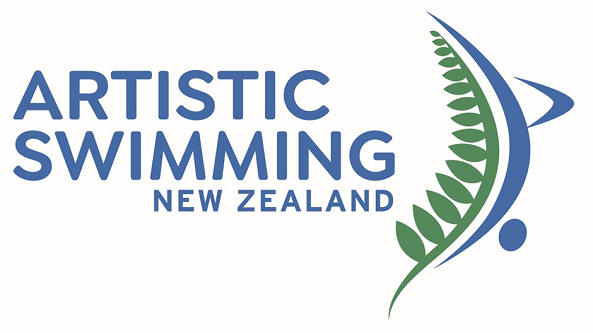
The 2021 South Island Championships were held last weekend in Christchurch. This year the North Island championships are being in Tauranga, in early July. There will be over 134 athletes from six clubs from around the North Island competing. Two years ago, the championships only featured 95 athletes meaning this year’s entries represent an increase of 41% - a positive sign that the sport is continuing to grow!
From The Archives ...
KIRWEE SPORTSMEN HOLD SOCIAL NIGHT
STAR (CHRISTCHURCH), ISSUE 17979, 16 OCTOBER 1926, PAGE 10
“Bert Batstone was one of Canterbury’s greatest and finest runners. He was never known to do a mean thing to a rival and he took victory humbly. Batstone was sent to Wellington in 1914 to take part in New Zealand championships and ran second in the 100 yards, 220 yards and 440 yards. This was no mean performance and the Kirwee man showed that he would do better next year. However, the war came and Bert Batstone knew his duty. While training, he won the army championships. He did not return from the war and thus Canterbury lost one of her best.”
Bertie Batstone was born 12 September 1890, the second son of George and Ruth (Cleaver) Batstone and one of nine siblings. George was a baker, confectioner and grocer in Kirwee (west of Christchurch), with his sons employed in the family business of “G. Batstone and Son”. The family worshipped at St. George’s Anglican Church in Kirwee. At the outbreak of the Great War, Bertie was employed in the family business and played Rugby League for the Addington club in Christchurch. He enlisted in April 1915.
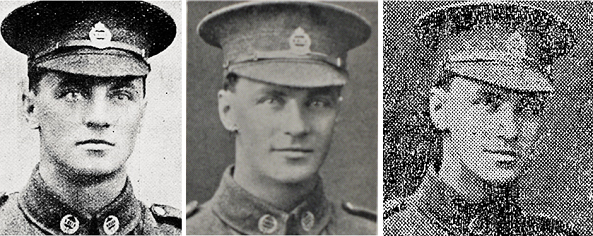
(The resolute gaze of Bertie Batstone, an athlete with "bulldog determination")
A Private in the 1st Battalion of the Canterbury Regiment (6th Reinforcements), Bertie was reported “missing” and then “killed in action” in France on 28 September 1916, having just celebrated his 26th birthday. (He had earlier survived Gallipoli and being wounded in France).
Bertie was remembered as “a fine sprinter”, running 100 yards in 10.1 seconds and 220 yards in 22.3 seconds, but was never seen really at his best on the track, “as he never trained sufficiently to get the best out of himself”. In the 1914-15 New Zealand Athletic Championships, held in Wellington, he scored three second places, and in each case he was beaten by only a slight margin. Martis, of Wanganui, beat him in the 100 yards and 220 yards, and Wilton, of Wellington, beat him in the 440 yards.
Reported to have “the same bulldog determination” of Ron Opie, a sprint champion of the era, Bertie often competed in handicap races in Christchurch, from the scratch mark, but did not contest any of the Canterbury championships of the era. As noted above, while in camp at Trentham he won the 100 yards and 220 yards military championships.
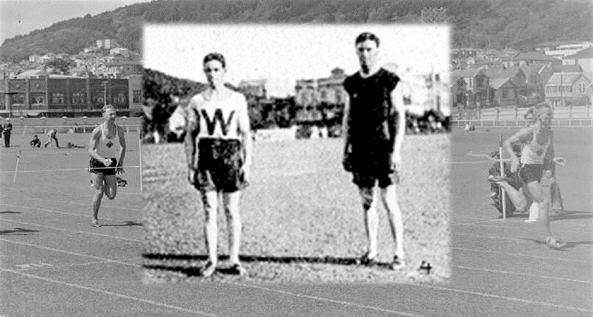
(Bertie Batstone, right, with Jimmy Wilton 440 yard winner at the 1914 NZ Championships)
In 1926, the Kirwee Amateur Athletic Club presented the inaugural "Batstone-Simpson Memorial Cup", for most points gained by a club member at Kirwee sports meetings. The Kirwee Amateur Athletic Club is no more (and the whereabouts of the Cup is unknown), but the north Canterbury town still features active lawn bowls, rugby football and tennis clubs. And for this week at least, the memory of Bertie Batstone, Kirwee’s celebrated athletic champion, lives on!
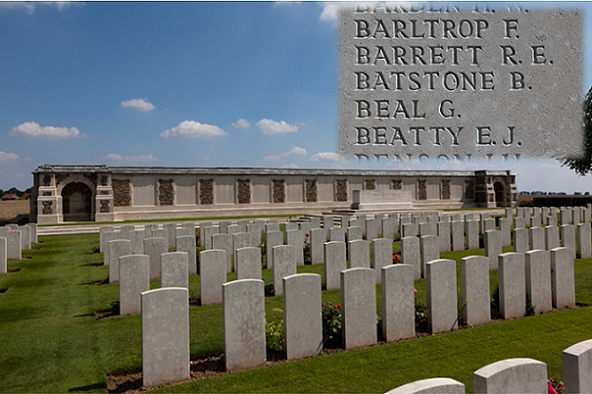
(The Caterpillar Valley - New Zealand - Memorial in in Longueval, France)
The Final Word ...
"It’s not about winning or losing, it’s about team ethos, making life-long friends, staying fit and creating some amazing memories and moulding these youngsters into men who will benefit society."
(Philip Davies, Kenfig Hill Rugby Football Club, South Wales)